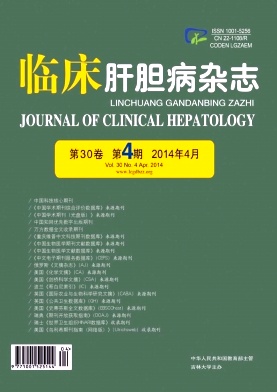Objective To investigate the relationship of serum adiponectin level with body fat, blood lipids, and insulin resistance (IR) in the patients with chronic hepatitis B (CHB) and patients with CHB and fatty liver.Methods Twenty patients CHB, 20 cases of CHB with fatty liver, and 18 healthy controls were included in the study;there were no significant differences in sex and age between the three groups.Fasting body weight, waist circumference (WC) , hip circumference (HC) , fasting insulin (FINS) , fasting blood glucose (FBG) , total cholesterol (TC) , triglyceride (TG) , high- density lipoprotein cholesterol (HDL- C) , low- density lipoprotein cholesterol (LDL- C) , alanine aminotransferase (ALT) , and aspartate aminotransferase (AST) were measured, and body mass index (BMI) , waist- to- hip ratio (WHR) , and homeostasis model assessment of insulin resistance were calculated.Serum concentrations of adiponectin were determined by enzyme- linked immunosorbent assay.Continuous data was expressed as x ± s, and comparisons between groups were made by one- way analysis of variance;comparisons of categorical data between groups were made by R × C χ2test;correlation analysis was performed by Pearson correlation test.Results The serum adiponectin concentrations of patients with CHB, patients with CHB and fatty liver, and healthy controls were 10.56 ± 2.48, 4.46 ± 2.16, and 6.38 ± 2.91 mg / L, respectively, with significant differences between the three groups (F = 30.537, P = 0.000) .The patients with CHB and fatty liver had significantly higher BMI, WC, WHR, and serum TG level than the CHB patients and healthy controls (P < 0.01) ;there were no significant differences in serum FINS, FBG, TC, HDL- C, LDL- C, and IR values between the three groups.Serum adiponectin level was only negatively correlated with TG in patients with CHB and fatty liver (r =- 0.485, P = 0.015) , but not correlated with BMI, WC, WHR, IR, FINS, FBG, TC, HDL- C, and LDL- C in all patients with CHB.Conclusion Serum adiponectin level significantly increases in the patients with CHB, which may presumably be the result of adiponectin exerting a protective effect on the liver, while it significantly decreases in the patients with CHB and fatty liver, which is closely related to elevated TG.













 DownLoad:
DownLoad: